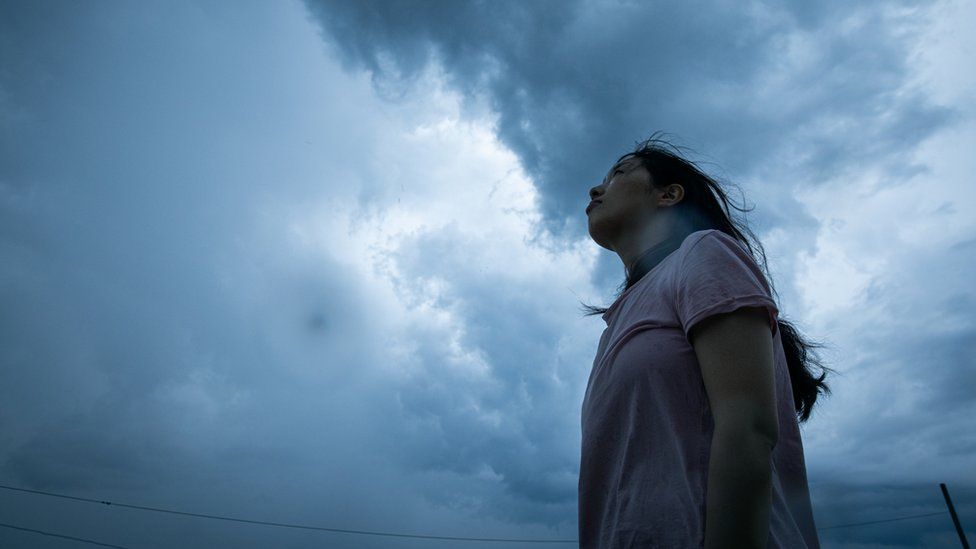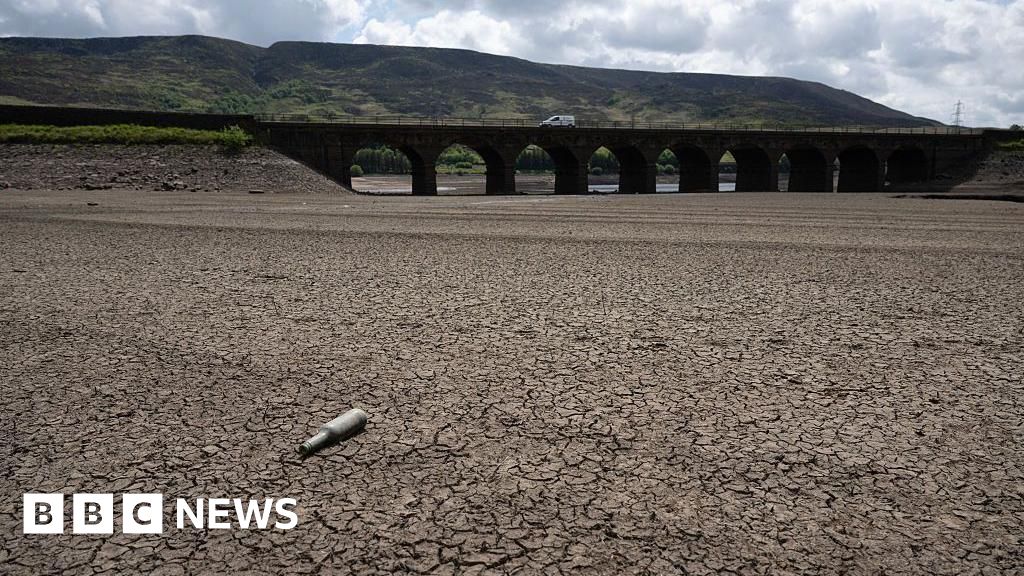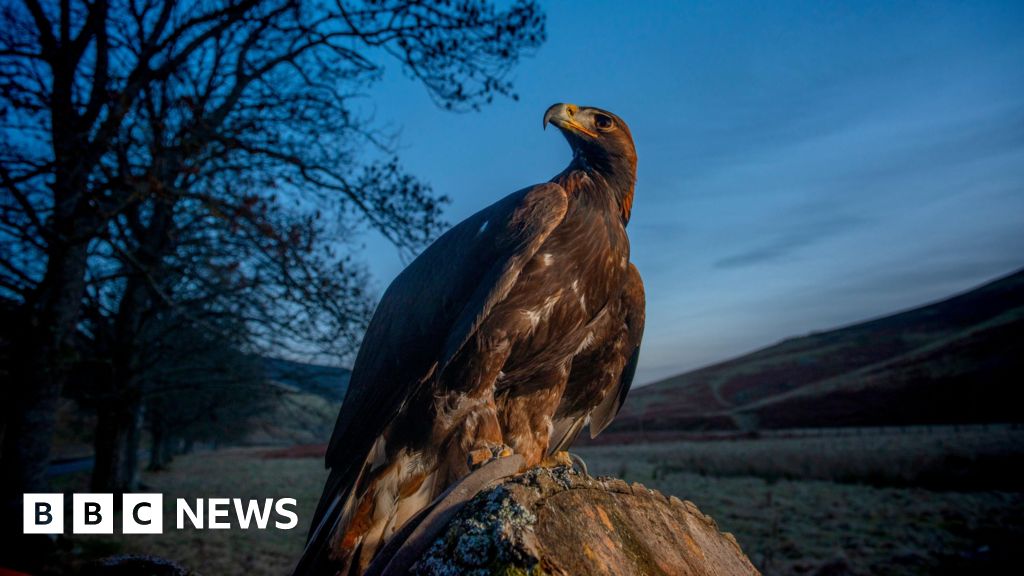ARTICLE AD BOX
 Image source, Getty Images
Image source, Getty Images
Climate anxiety is a term that describes distress at the impact of climate change on the planet and human existence
By Lucy Gilder
BBC 100 Women
Online search queries related to "climate anxiety" have risen, according to data gathered by Google and shared exclusively with BBC 100 Women.
Studies also suggests that women are more affected by climate anxiety than men.
The rise of wildfires, floods and droughts around the world are just some of the highly visible signs of climate change.
What is reported less is the impact of climate change on human minds.
Climate anxiety - defined as feelings of distress about the impacts of climate change - has been reported globally, particularly among children and young people.
Data from Google Trends shows that search queries related to "climate anxiety" have increased dramatically.
Search queries in English around "climate anxiety" in the first 10 months of 2023 are 27 times higher than the same period in 2017.
Image source, Getty Images
Image caption,This year's COP28 in Dubai will also feature several discussions about mental health
There have been surges related to climate anxiety in other world languages over the same period.
- Search queries in Portuguese have risen by 73 times
- Search queries in Chinese languages have risen by eight-and-a-half times
- Search queries in Arabic have risen by a fifth
These are not the languages with the most commonly searched queries around climate anxiety but are just some of the world languages the BBC asked Google to look at.
Searches may be higher among speakers of languages with greater awareness of climate anxiety, or among those who use Google most often and do not necessarily suggest that people in countries with bigger shares of search queries are more prone to experiencing climate anxiety.
The Google Trends data combines search queries for "climate anxiety" and "eco-anxiety", terms which are often used in the same way but which have slightly different meanings.
Image source, Getty Images
Image caption,Many of the worst years for Californian wildfires on record have occurred in the last decade
Climate anxiety is anxiety specifically associated with awareness of climate change. Eco-anxiety is a more general anxiety associated with awareness of threats to environmental health, including pollution and loss of biodiversity.
Google Trends does not simply measure the total volume of searches but look at a sample of searches to identify trends around the world. It uses a measure called "search interest", to look at the relative popularity of search queries over time.
Nordic countries had the biggest share of global search queries related to climate anxiety over the past five years.
In fact, Finland, Sweden, Denmark and Norway accounted for more than 40% of search queries related to "climate anxiety".
Google says that its data is adjusted to account for differences in overall search volume, which allows it to compare countries of various population sizes. That's why smaller countries may top the ranking instead of more populated ones.
Countries in the Global South - such as Chile, the Philippines and South Africa - represented smaller shares of search queries. Countries with low search volumes have been excluded from the analysis.
Google says it has also noted a global increase in search queries about the future of the planet together with queries about the environment in the last 12 months.
"When you look at the kind of queries people are searching for, it's evident that they are seeking understanding, but also wanting to take action," a spokesperson said.
"For example, 'how to solve climate change' was one of the trending queries about climate change worldwide in the last two years."
Google data shows a rise in queries about the future together with climate change (up 120%), adaptation (up 120%), sustainability (up 40%) and greenhouse gas emissions (up 120%) in the last 12 months.
Trending queries worldwide about climate change include Spanish language searches such as "cuales son los riesgos del cambio climático?" or "what are the risks of climate change?" (up 150%).
Image source, Getty Images
Image caption,Finland, where these climate demonstrations took place, came top for Google search queries around climate anxiety
Google did not release data on the gender of people searching for queries related to "climate anxiety" but studies have indicated that women are more predisposed to climate anxiety than men.
Findings from a 2023 study published in the academic journal Sustainability, for example, showed that female respondents around the world reported "greater levels of concern and negative emotions" about climate change. Male respondents, on the other hand, were "more optimistic and expressed greater faith in government".
The study was based on an online survey of 10,000 people aged 16 to 25 across 10 countries carried out in 2021.
Analysis of more than 44,000 respondents from the European Social Survey in 2019 also concluded that women registered greater concern about climate change than men.
Professor Susan Clayton, who co-authored the Sustainability study, has some possible explanations for this. She says that one reason women consistently report higher levels of concern is that they are more open to discussing emotions.
"Women are in general more willing, and may be able to acknowledge their own emotional response [to climate change]. So they seem to think about their emotions, and they are more willing to talk about them, compared to men in general," she says.
But she also says that some women may worry more about climate change because they are at greater risk than men of experiencing some of the real-life impacts.
"After an extreme weather event you frequently find increased levels of domestic violence, and when people are involuntarily displaced, due to climate change, that opens women to the threat of sexual violence or trafficking," she says.
"Also, women are often physiologically vulnerable to climate change. So high temperatures and air pollution can have an impact during pregnancy and the ways pregnancy affects a woman's body may make it more difficult for her to escape extreme climate conditions."
There is some research which suggests women are more likely than men to die in climate change-related disasters.
Image source, Getty Images
Image caption,Cyclone Sidr in Bangladesh in 2007 caused thousands deaths and left millions homeless
For example, a study looking at cyclones in Bangladesh between 1983 and 2009 suggested that women had an increased mortality risk compared to the general adult population.
The Intergovernmental Panel on Climate Change (IPCC) says it's likely that humans have contributed to the increased intensity of some cyclones.
Professor Clayton says that gender-based inequalities mean that some women in poorer countries may lack access to information following a climate change event.
They are less likely to be able to travel to a place of safety, and may have caring responsibilities that mean they prioritise the safety of others over themselves.
Indirect and longer-term impacts of climate change can also be detrimental to the wellbeing of women and girls.
"Some studies have shown that girls are married earlier when the family is facing economic pressures associated with the changing conditions of climate change.
"For example, maybe agriculture is threatened by droughts or floods and so because of their economic constraints families want to marry off their daughters, so they don't have to feed the daughters themselves," Professor Clayton adds.
In 2022, the IPCC reported on the mental health impacts of climate change for the first time. This year's COP28 in Dubai will also feature several discussions about mental health.
Just as the physical impacts of climate change are on the rise, so too is the attention paid to its impacts on the mind.
BBC 100 Women names 100 inspiring and influential women around the world every year. Follow BBC 100 Women on Instagram and Facebook. Join the conversation using #BBC100Women.

 1 year ago
44
1 year ago
44








 English (US) ·
English (US) ·